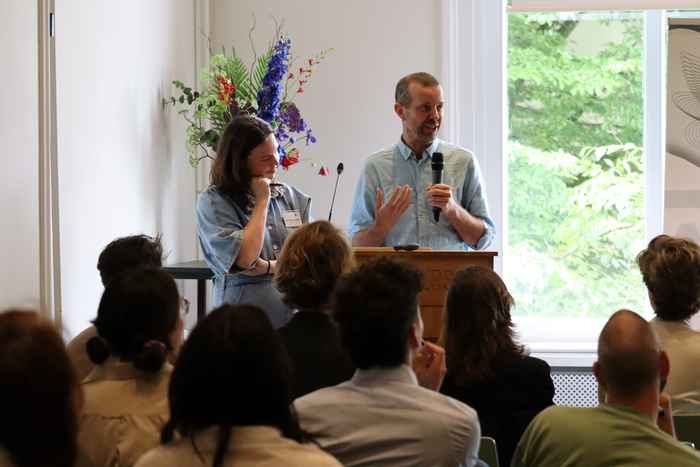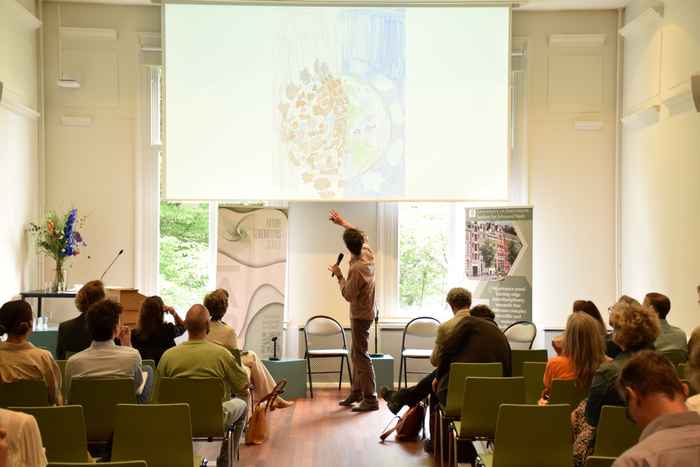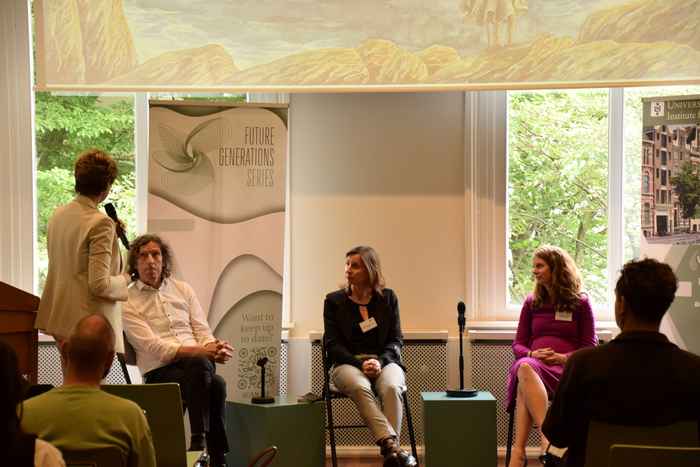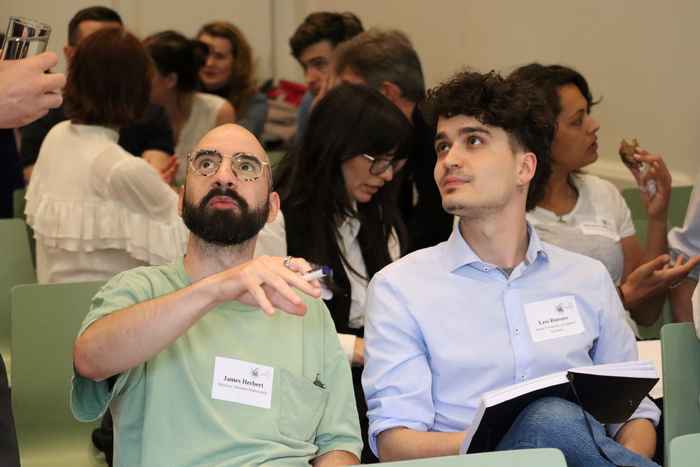Shaping the world of tomorrow for Future Generations
3 June 2024
Societal Impact through Science and Imagination
While the Future Generations launch event focused on the “Why we should take interests for Future Generations into account”, the second edition focused on “How to take future generations into account” in our research and policy. The conversations during these events sparked new initiatives and collaborations and also emphasized that imagination is a crucial aspect in taking future generations into account in our research and policy making. On May 21, the third and final edition of the lecture series in this academic year took place, focusing on “What” we need to do in practice to take the interests of future generations into account, and how imagination plays a key role in it.
With the series IAS hopes to support science-based societal change to promote intergenerational justice, sustainability and health for generations to come. As such, the initiative aims to inspire scientists from every generation, policy makers and societal organisations to collaborate and translate the science within these themes to society. It is the ‘springboard’ for making societal impact towards current and future generations.

Inspiring Change and Action
“We are standing on the shoulders of our ancestors, laying foundations for future generations”, prof. Tessa Roseboom reminded the audience in her opening speech. She emphasized the alignment of the series with global efforts like the Declaration on Future Generations and the recently published Dutch Manifesto for Future Generations, which calls for actionable steps. Through inspiring talks and engaging activities, distinguished speakers defined and envisioned these actions.
The first three speakers, Victor Toom, Marij Swinkels, and Olivier de Vette, brought the concept of Future Design to life. They engaged the audience in a hands-on session, sharing their experiences using Future Design in pilot projects with the Scientific Council for Government Policy Advice. This method leverages imagination to give future generations a voice in shaping realities, from urban planning to healthcare policies. Compared to conventional approaches, Future Design fosters more creative and sustainable solutions and enhances empathy.

Maarten Gehem, director of the Argumentation Factory and founder of the Long Term Think Tank in the Netherlands, introduced his initiative of bringing together policymakers, journalists, scientists, and funders to brainstorm the necessary conditions for effective long-term planning and policies. In an interactive session, he challenged the audience to rethink current practices to incorporate long-term thinking and acting for future generations into daily life.
Merlijn Twaalfhoven, composer and founder of the Turn Club, spoke passionately about how adopting an artist's mindset can positively change the world. 'Can we imagine a future? Do we practice this somewhere?' asked Twaalfhoven, stressing the importance of using imagination to envision a fluid and ever-changing future. By tapping into our emotions and a different source of wisdom, he suggested this approach can lead us out of conventional thinking and into unchartered territory.

Strategies for a Sustainable Future
The panel discussion with Professor Andre Nollkaemper (UvA), Professor Tamara Metze (Delft University) and Dr. Noortje Thijssen (senator PvdA-GroenLinks) explored actions at personal, local, national and international levels to consider future generations’ interest. The lively discussion with the audience yielded creative suggestions on how to integrate these considerations into various aspects of society.
The conversations were inspiring and sparked interdisciplinary interactions that could lead to innovative ideas. The diverse audience that participated in the Future Generations events, included scientists from various fields from within and outside the UvA, policy makers, politicians, societal organisations, artists and companies, demonstrated a collective desire to create connections, participate in the conversation, and take joint action.
As we reflect on the success of the Future Generations series, the conversations continue. We invite you to be a part of it and share your ideas on how to take this initiative forward. Stay tuned for updates and future events as we collectively work towards a better world for generations to come.
